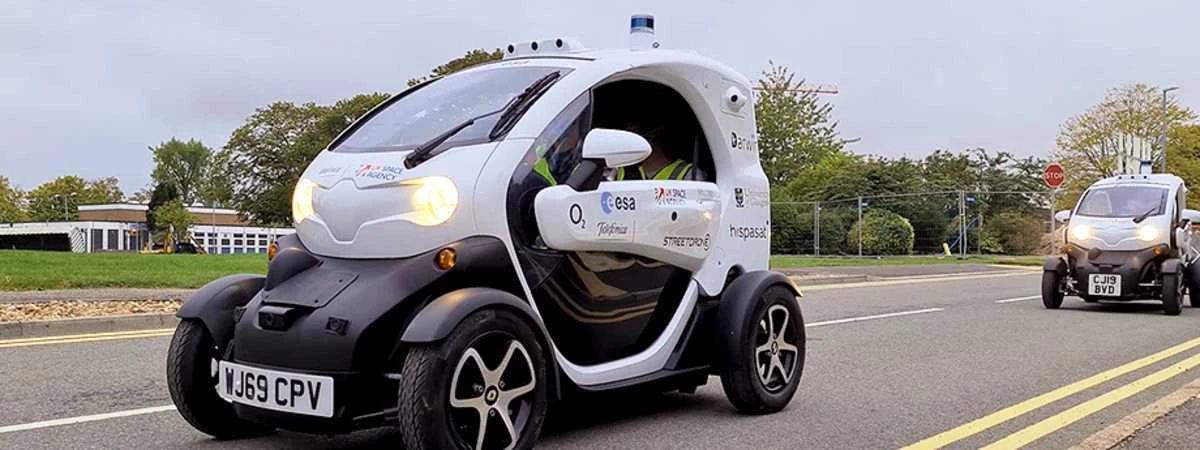The first commercial laboratory for 5G and satellite communications in the UK has been launched as part of Project Darwin, a four-year trial programme supported by O2 and the European Space Agency and based in the Harwell Science and Innovation Campus in Oxfordshire.
The laboratory, named the Darwin SatCom Lab, is now open to companies looking to explore next generation connectivity solutions for connected and autonomous vehicles (CAVs) using both 5G and satellite communications.
Companies are now able to test proofs of concept using two Renault TWIZY electric cars (pictured below), which O2 has converted into CAVs and fitted with LIDAR sensors to allow them to be controlled from the Lab and driven around the Harwell Campus.
Satellite communications will be able to play a crucial role in the extension of 5G networks to allow seamless connectivity to remote and harder-to-reach areas for trains and road vehicles, providing reliable access to the whole of the UK.
Using 5G equipment provided by Nokia and geosynchronous communications satellites (GEOs) provided by Hispasat, the Spanish satellite operator, O2’s 5G Innovation team can remotely track the status of the CAVs, including their position, movement and speed.
A digital twin version will also be broadcast to screens in O2’s laboratory at the University of Glasgow, unveiled in March, and at the company’s headquarters at Bath Road, Slough.
Using 5G and satellite communications to revolutionise deliveries
One of the proofs of concept already being tested at the Darwin SatCom Lab tracks the CO2 emissions of the vehicles using the LIDAR sensors.
By using satellite imagery to see the areas the vehicles are travelling through and monitor local biodiversity, the laboratory team is able to calculate the emissions savings of taking different routes based on carbon capture from nearby trees. This research will inform how O2’s retail partners carry out last mile deliveries, bringing goods such as groceries directly to their customers.
First announced in June 2019, Project Darwin brings together Oxford and Glasgow Universities, Hispasat, start-ups specialising in self-driving mobility solutions and Darwin Innovation Group Oxford, in order to test new technologies and end-to-end connectivity solutions with 5G and satellite communications.
The Darwin SatCom Lab is open to companies who want to test the power of 5G and satellite communications connectivity by bringing their ideas to life. Businesses that would like to develop a proof of concept can book the Lab here.
Derek McManus, COO at O2 said:
“We’re delighted to announce that the Darwin SatCom Lab is now open for business at Harwell Campus, allowing companies to put theory into practice and test innovative ideas using our connected and autonomous vehicles.
“The Lab is further proof that O2 is at the forefront of connectivity and accelerating Britain’s recovery by helping British businesses to harness the power of 5G and satellite communications in order to benefit their customers. It’s the next step in getting autonomous vehicles on the road and making the UK’s transport network greener.”
Amanda Solloway MP, Minister for Science, Research and Innovation added:
“The UK’s space sector is applying pioneering technologies such as satellite and 5G to essential products and services that will help to transform our everyday lives.
“I am incredibly excited that O2’s first of its kind driverless car lab will enable our most innovative businesses to test these technologies and bring us another step closer to putting self-driving vehicles safely on our roads.”



